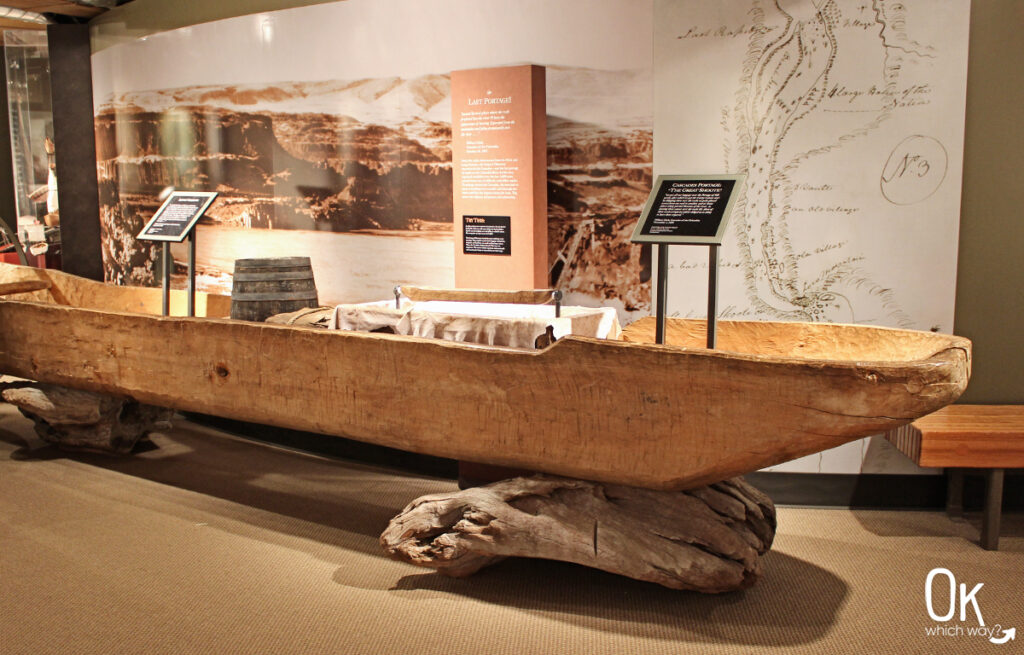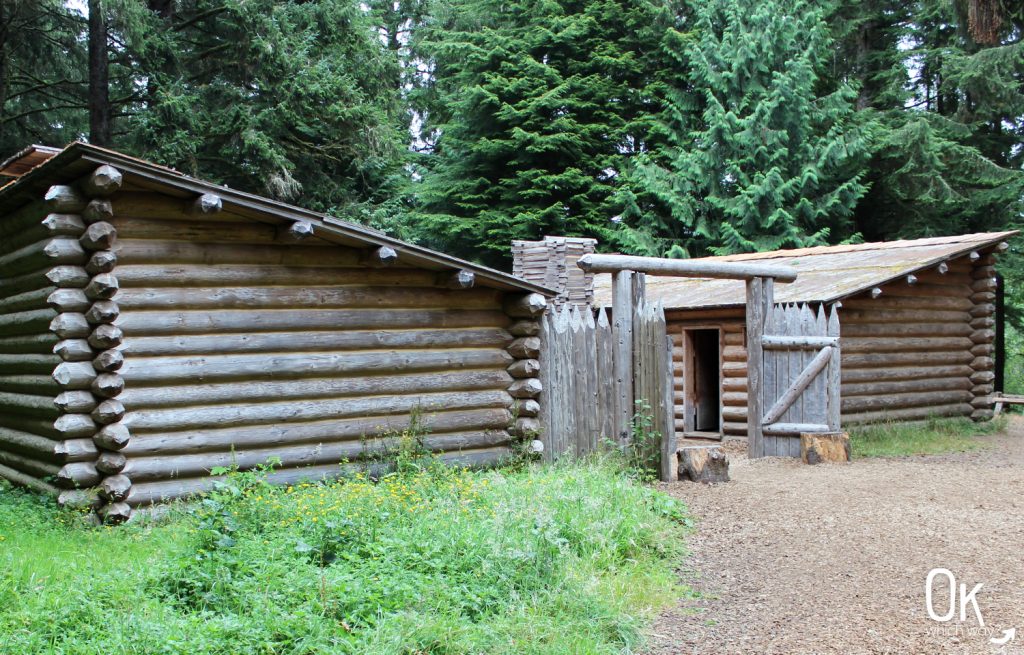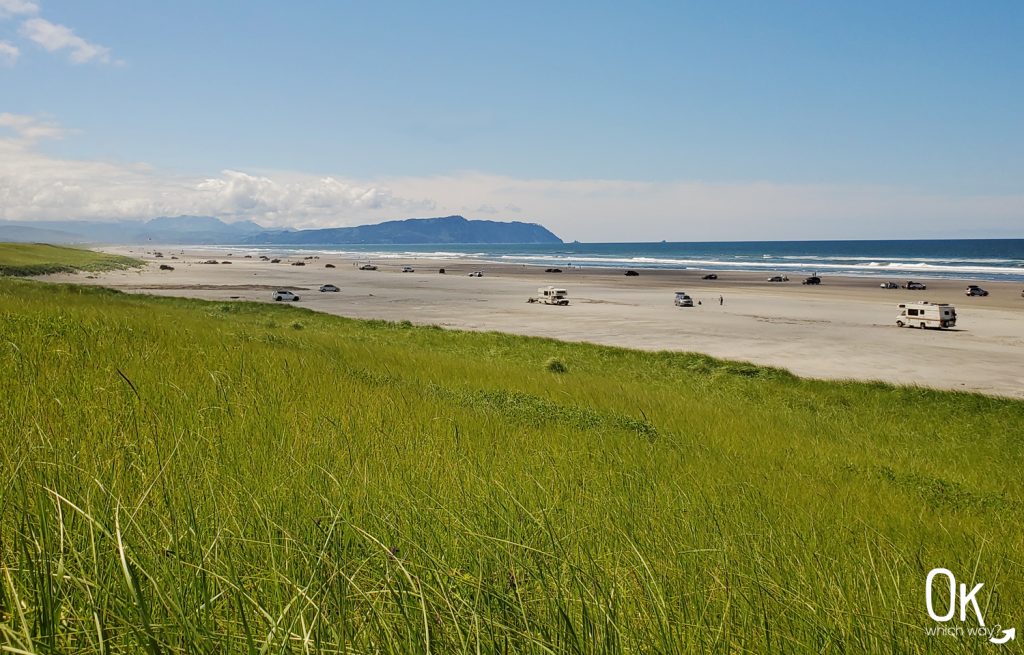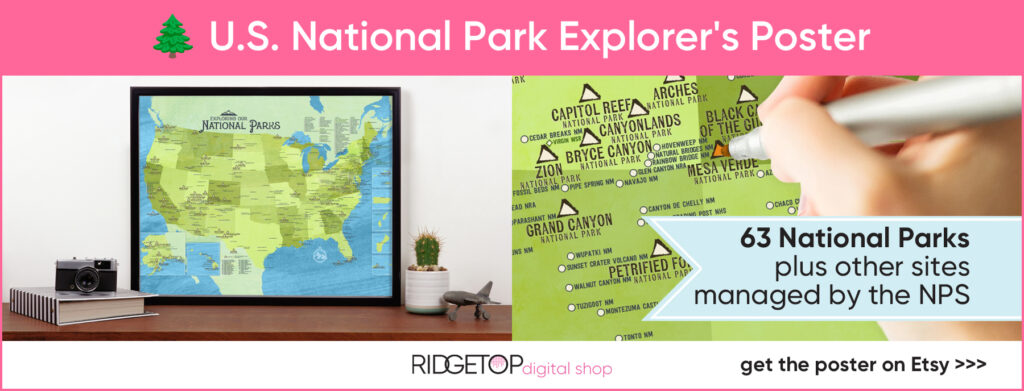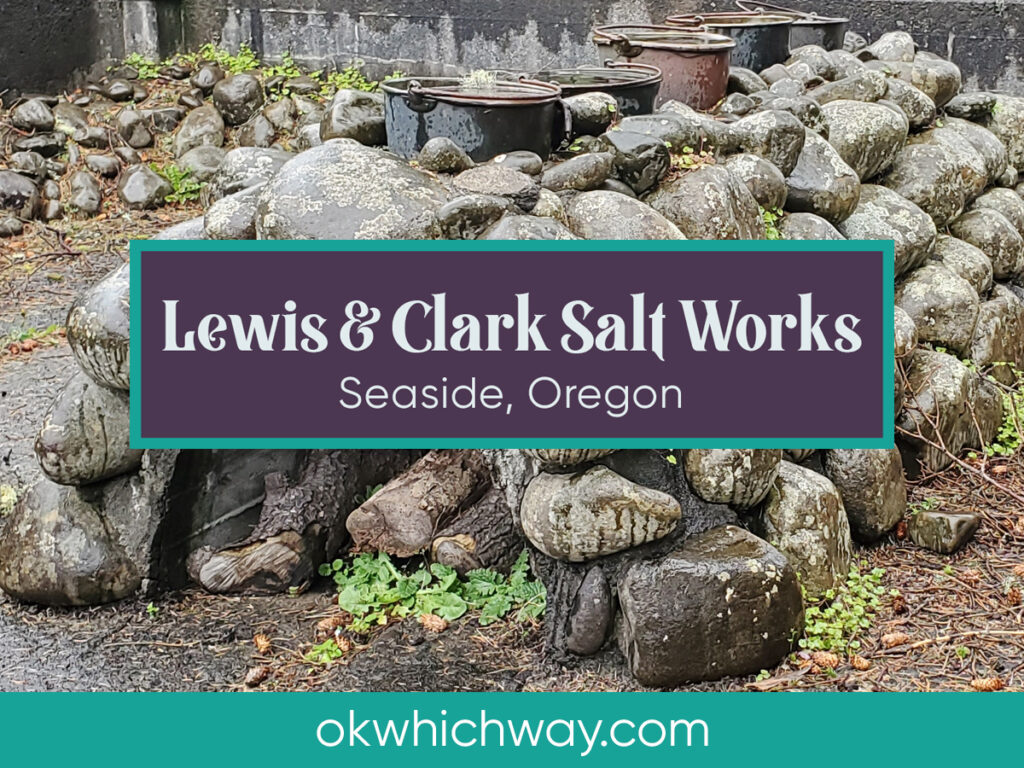
Lewis and Clark Salt Works in Seaside
Seaside is known for being a touristy coastal town. It has sand and shopping, a carousel and arcade, as well as plenty of food choices. It is also home to a quirky historical site dating back to the early 1800’s. The Lewis and Clark Salt Cairn location is at the south end of town, less than a mile from popular Broadway Street. Visiting the salt cairn doesn’t take much time and is a great way to throw in a little history to your beach trip.
This post may contain affiliate links. When you make a purchase using one of these affiliate links, we get paid a small commission at no extra cost to you.
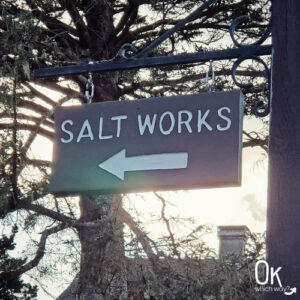
Know Before You Go
Location: Southern end of Seaside, Oregon
Getting There: The salt cairn is just a few blocks west off Highway 101 and less than a block from the Promenade. From Avenue U, you have the option of parking near the salt cairn by turning onto Beach Drive then on Lewis and Clark Way, where the site is located. Or, park at the beach access at the end of Avenue U and walk 3 blocks north up the Prom until reaching Lewis and Clark Way.
Lodging & Food: None. However, the site is located within the city of Seaside which has many options.
Entrance Fee: None
Lewis & Clark Salt Camp Site
After 18 months, in November 1805, the Corps of Discovery finally reached the Pacific Ocean. In January of 1806, several men traveled 15 miles from their camp at Fort Clatsop to collect and boil sea water to produce enough salt to last them through their journey home. The salt was needed not only to add flavor to their meals, but more importantly to preserve meat – that included elk, fish, and dog. These men stayed for 7 weeks and produced 28 gallons of salt.
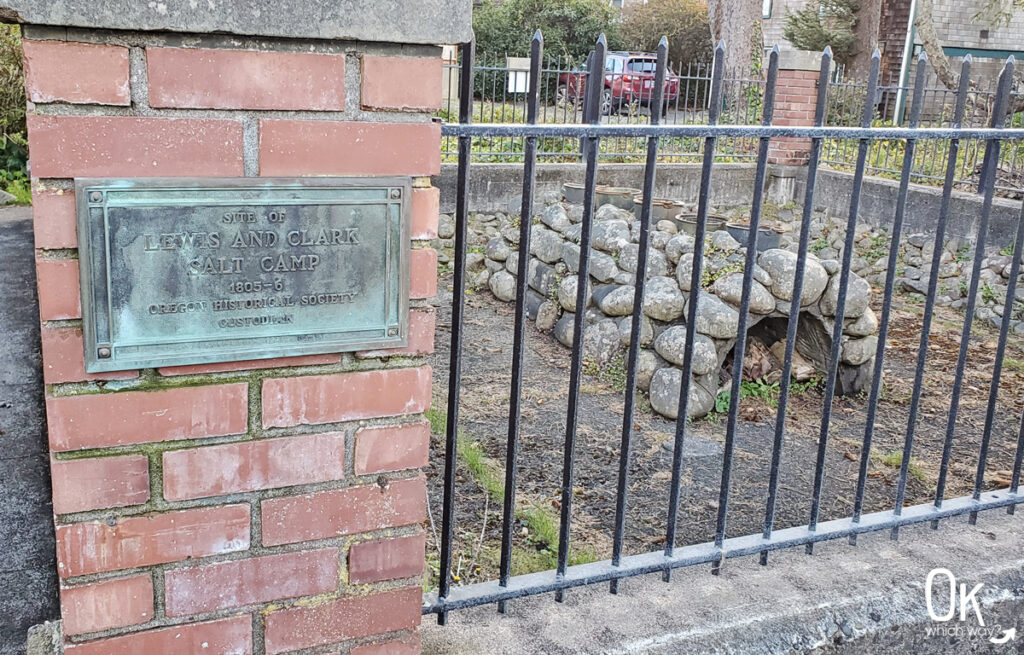
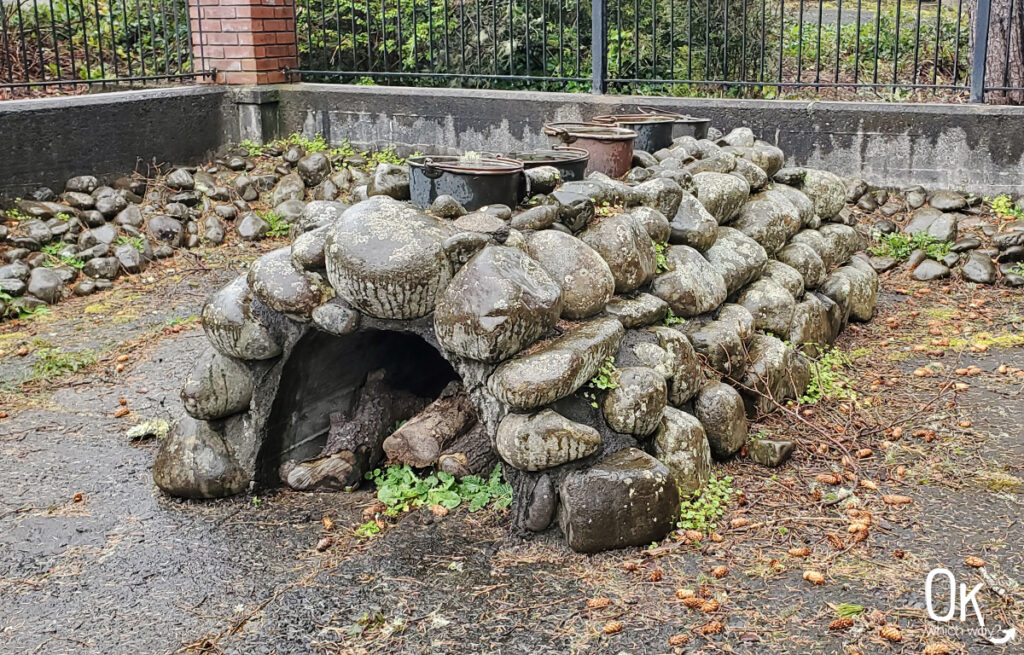
Tsin-is-tum, also known as Jennie Michel
Tsin-is-tum is credited with identifying the location of Lewis and Clark’s salt camp. She was a known figure in the community, and in 1900 pointed out the site to the Oregon Historical Society based on her family’s recollection.
Life in the 1800’s was difficult for Tsin-is-tum, and all Clatsop people. Their population had rapidly declined due to diseases including smallpox, malaria, and measles. The land they loved was being claimed by others. And, Tsin-is-tum’s father was killed during an attack of her village by men from the Hudson’s Bay Company.
After the death of Tsin-is-tum’s first husband, Wah-tat-kum the last Nehalem chief, she married Michel Martineau, a Hudson’s Bay Company employee from Manitoba.
Tsin-is-tum and Martineau purchased land in Seaside, in an area known as Indian Place. This community was a place tribal members could seek refuge as they adjusted to all the significant changes.
Tsin-is-tum died in 1905 and is thought to be one of the last full blooded Clatsop people.
Present Day Salt Producer: Jacobsen Salt Co.
A little over an hour south of the Lewis and Clark Salt Cairn location is present day salt producer, Jacobsen Salt Co. They use the clean water from Netarts Bay to manufacture their variety of sea salts including fine, kosher, flaky, and flavored.
No tours are offered, but you can get a peek at the salt producing process when visiting the gift shop right along Netarts Bay.
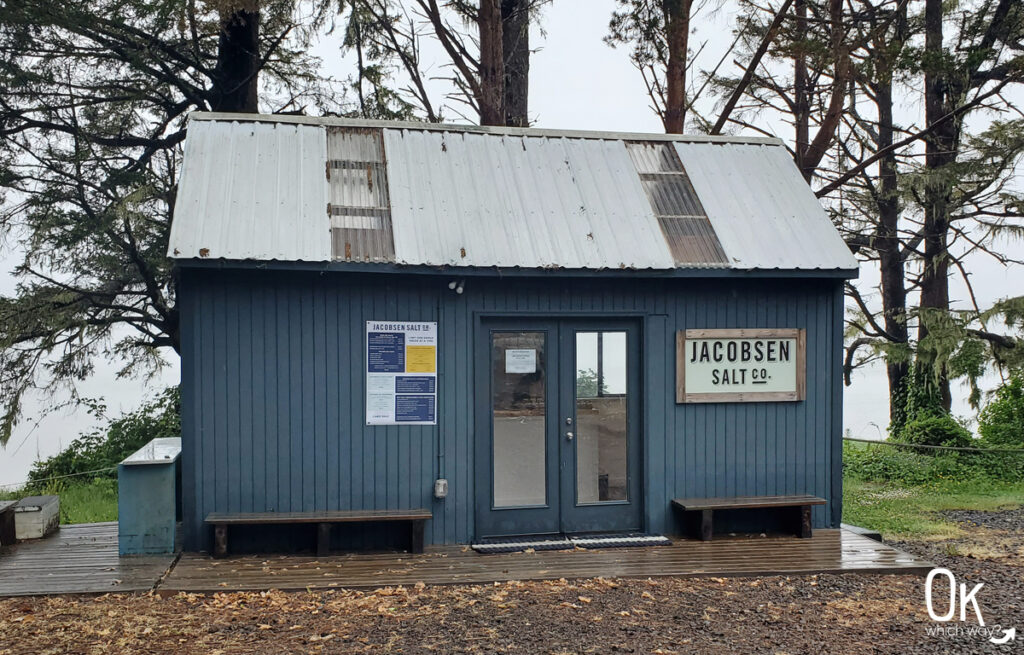
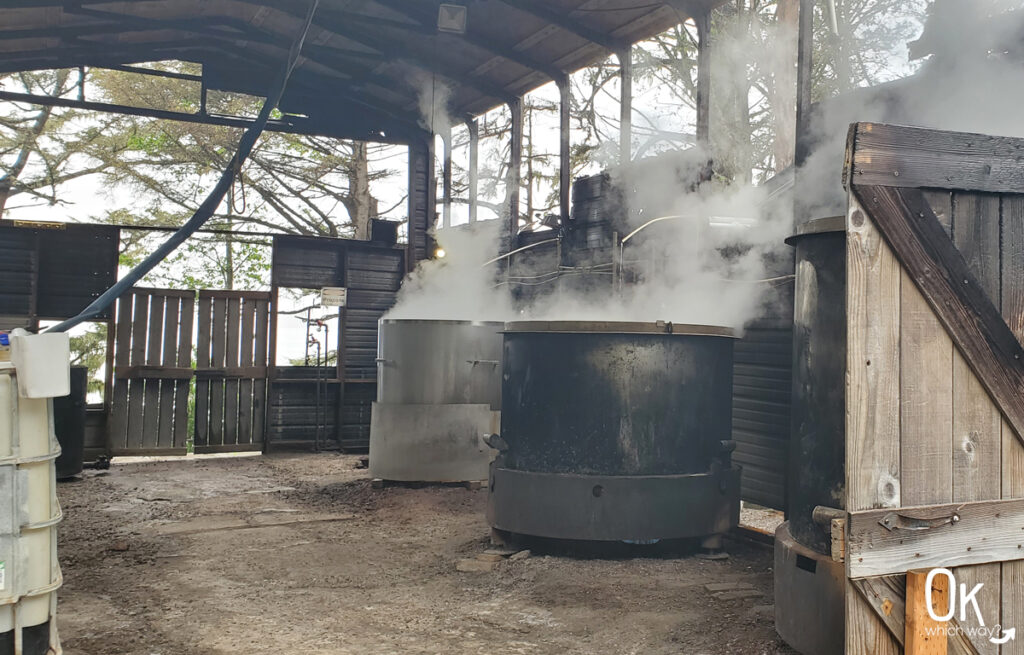
LEAVE NO TRACE
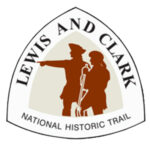
Native Americans
The coastal areas from Astoria to Seaside, and south to Cannon Beach, are within the traditional territory of the Clatsop Indians.
Other Lewis & Clark Sites Nearby

